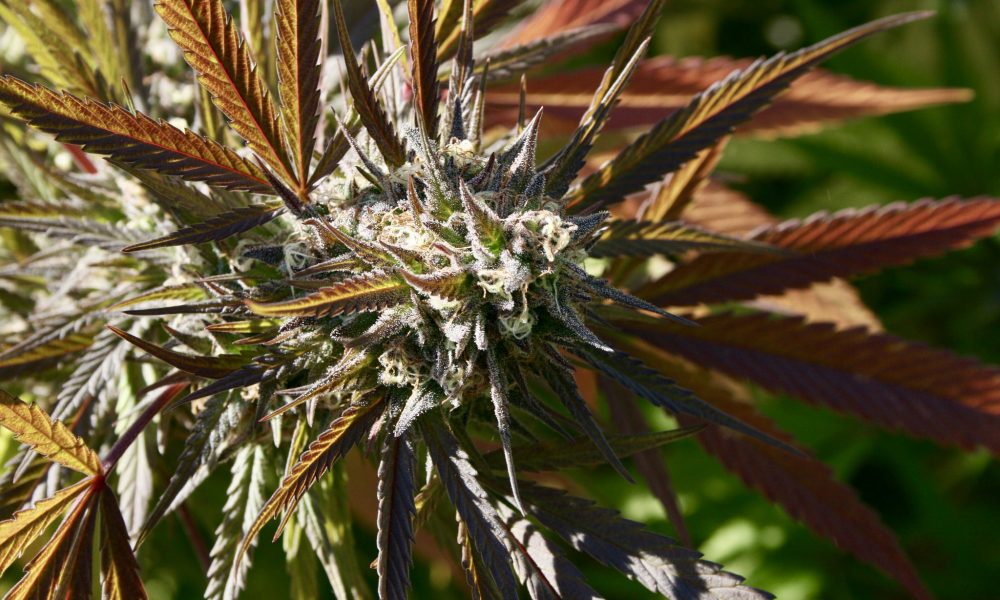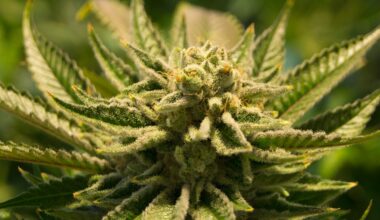As more U.S. states move to legalize marijuana in some form—and neighboring Canada’s cannabis market matures—demand for illicit marijuana from Mexico continues to drop, a newly updated report from Congress’s research arm says.
The language from the Congressional Research Service (CRS) report is largely consistent with an earlier version it released in 2020, but it further underscores how the international drug trade is shifting as the legalization movement expands.
“U.S. seizures of imported marijuana began to decline in 2019,” the CRS analysis says, citing the State Department’s 2022 International Narcotics Control Strategy Report. “Authorities are projecting a continued decline in U.S. demand for Mexican marijuana because drugs ‘other than marijuana’ will likely dominate the cross border traffic.”
Part of the reason, as CRS previously explained in the 2020 report that has since been updated, is “due to legalized medical and nonmedical/recreational cannabis in many U.S. states and Canada, reducing its value as part of Mexican trafficking organizations’ portfolio.”
It further notes that Mexico’s Congress is taking steps to legalize marijuana as well.
The CRS report raises questions about why violence in the Mexican drug trade has persisted as cartels have increasingly moved away from plant-based drugs like cannabis and opium, to synthetic substances. The implications of this trade shift “remain unclear,” it says.
“Changes in the illegal drug markets in the United States and Canada from marijuana legalization; increased demand for opioids, especially synthetic opioids; and changing patterns of use of methamphetamine and other drugs have contributed to the [drug trafficking organizations’] continuing evolution. The cartels’ broad reach and control of large territories inside Mexico, as well as their production of illicit drugs, has been termed ‘alarming’ by the U.S. State Department.”
As part of its Fiscal Year 2023 performance budget summary submitted to Congress earlier this year, the Drug Enforcement Administration (DEA) also acknowledged that as more marijuana is being produced domestically in the U.S., it’s undermining illicit cannabis trafficking from Mexico.
In that report, the agency talked about shifting trends in cannabis production, as well as its own efforts to support cannabis research, including by breaking the decades-long federal monopoly on authorized cultivation.
DEA didn’t explicitly say that more Americans are buying marijuana from state-regulated businesses as the legalization movement has continued to expand, but it did say that “Mexican marijuana has largely been supplanted by domestic-produced marijuana,” even if that country “remains the most significant foreign source for marijuana.”
A study released by the Cato Institute in 2018 similarly found that “state-level marijuana legalization has significantly undercut marijuana smuggling.”
With respect to trends in marijuana enforcement overall, data from the FBI that was released in late 2020 showed that, for the first time in four years, cannabis arrests declined nationally.
However, FBI’s system of reporting state and local marijuana arrests may be seriously flawed, and a local Maryland official with extensive drug policy experience recently asked the Justice Department Office of the Inspector General to launch a formal investigation into the matter.
Meanwhile, federal prosecutions over marijuana dropped again in 2021, with fewer than 1,000 people charged in cannabis trafficking cases, according to a recent report from the federal U.S. Sentencing Commission (USCC). It’s yet another sign that the plant is becoming a lower enforcement priority as the legalization movement scores wins in more states.
This represents a continuation of a trend that’s been playing out in recent years, especially as more states have move to legalize cannabis and federal officials have seemingly adopted policies placing less emphasis on going after people over marijuana. In 2020, USCC documented 1,118 cannabis cases.
Federal prosecutions of drug-related crimes overall increased in 2019, but cases involving marijuana dropped by more than a quarter, according to an end-of-year report released by Supreme Court Chief Justice John Roberts that year.
Photo courtesy of Brian Shamblen.
Medical Disclaimer:
The information provided in these blog posts is intended for general informational and educational purposes only. It is not a substitute for professional medical advice, diagnosis, or treatment. Always seek the advice of your physician or other qualified healthcare provider with any questions you may have regarding a medical condition. The use of any information provided in these blog posts is solely at your own risk. The authors and the website do not recommend or endorse any specific products, treatments, or procedures mentioned. Reliance on any information in these blog posts is solely at your own discretion.






